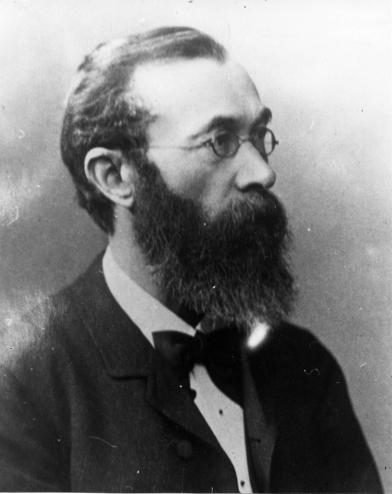Last week I presented The Civic Mirror to a group of student-teachers at the University of Victoria. What followed was an online conversation about teacher-created learning resources and their ‘ethical’ implications. I feel that others might be interested, so I’m posting my reply here:
Thanks, Jimmy-Jo, for the reply. I’m sipping my coffee before another work day and will reply to the following statements below:
“How do you justify charging the same teacher or class over and over again for the same product? Why isn’t it enough to sell your product once to a class or teacher?”
“You mention in your response to me that I ‘don’t like that [you] are building a business out of the notion of simulations’ and that you ‘really get that sentiment.’ I would be interested in knowing just how you get my sentiment. Like I already said, I don’t have a problem with you making a business out of simulations. I just have a problem with it when it imposes a barrier ($$) to students’ opportunities. It seems a case of the haves getting what the have-nots cannot, simply because there is a monetary barrier.”
I suppose what I mean is that “I get” the ‘good teacher’s’ notion of universal sharing and service. I was raised by teachers. I grew up listening to the stories – observing my parents sharing ideas and strategies with their teacher friends. I remember my Dad – as a vice principal no less – remaking an educational board game for one of his teachers in the garage because there was no money in the school budget (it was late in the year, $$ gone) to purchase it, and he really thought highly of the teacher who wanted it. And I’m still restricted by $$ at my school today (e.g. our SS department has an annual operating budget of $1200 for 10 teachers and 1400 students – ouch). So what “I get” is the frustration, the spirit, and the principle of what I thought you were talking about (because it’s ubiquitous); maybe not what you were feeling/thinking exactly, but I thought I understood the gist. Sorry if I misinterpreted.
“Remember, we are teaching in a public school system, which is supposed to be free, unbiased and accessible to all”
Agreed, but what I’m learning – and very acutely as we sink more and more money into this start-up to get it off the ground – is that any sort of organizational entity needs money to stay afloat. Public education raises their money through taxation. Non-profits raise their money through donations and grants. Businesses raise their money from ready, willing, and paying customers. The public education system is not in the business of producing and publishing learning resources. They provide education. They simply can’t do both. Producing and publishing is left to non-profit and for-profit publishing companies.

Whole departments within school districts, states, and provinces exist to purchase learning resources so that their students and teachers may benefit from the educational experiences they provide. Again, the benefit lies in the educational value they provide. These departments do not exist, as one of your classmates seemed to indicate, in order to pass on dollars to students in a trickle-down effect. The benefit comes from what they provide educationally. As I’m sure you know, the resources and infrastructure all publicly-funded institutions use to carry out their mandate are largely provided and purchased from private companies.
Admittedly, I knew nothing about business when I started this. That’s why I took a Graduate Diploma in Business Admin beforehand. I thought the most foolish thing I could have done was start a non-profit or for-profit venture and not know how to run it successfully. While studying I realized I had two choices: build Action-Ed as a non-profit or for-profit organization. I chose for-profit because it’s much more fluid, because I wouldn’t have to apply for money at the end of every fiscal year and be limited (and possibly compromised) by what the reviewers thought was worth funding, because growth (and the change the growth creates) is unlimited, and because – yes – there might come a day when my family’s financial situation benefits too.
I’ve been saying for some time that education needs better tools. I’ve also been saying that it isn’t fair how little autonomy teachers have in the purchasing of learning resources. What’s ironic, I suppose, is how few teachers question or critique the motives of big publishing companies who – right now – have billions of dollars in cash-on-hand, but critique and judge the teacher-turned-small-publisher for doing the same thing.
 I think the sentiment is like this because so few teachers understand how learning resources are purchased by schools and districts. Teachers can visualize themselves making a go of it, so it’s easy to pass judgment on another teacher who does. It’s difficult, however, to comment on something (in this case, the monstrous learning resource industry) when you don’t know much about it. I understand why this is. Very few teachers are readily provided with access to their school’s or district’s operational budgets. In fact, you’d be sure to ruffle some feathers if you asked for full disclosure. Teachers can make requests to purchase resources for their classrooms, but few are given the actual authority to make small or medium purchases, let alone large ones. Teachers are not given financial autonomy at all, really.
I think the sentiment is like this because so few teachers understand how learning resources are purchased by schools and districts. Teachers can visualize themselves making a go of it, so it’s easy to pass judgment on another teacher who does. It’s difficult, however, to comment on something (in this case, the monstrous learning resource industry) when you don’t know much about it. I understand why this is. Very few teachers are readily provided with access to their school’s or district’s operational budgets. In fact, you’d be sure to ruffle some feathers if you asked for full disclosure. Teachers can make requests to purchase resources for their classrooms, but few are given the actual authority to make small or medium purchases, let alone large ones. Teachers are not given financial autonomy at all, really.
As a result, most teachers – because they’re not given access to money and therefore do not understand how the learning resource acquisition process works – think there’s no money available when there really is.  The ‘pots of money’ do exist, but they’re heavily guarded with rules and procedures and controlled by only a few. I understand the reasons for this, but it has it’s consequences. Most teacher’s I’ve talked with (especially in Canada) are blown away when I explain to them how many tens-of-thousands of dollars (and into the millions in some cases) are reserved for learning resource acquisitions. I think this has a lot to do with why ‘changing education’ is seemingly impossible. If the avenues for creating and using new educational tools are full of impenetrable barriers, why bother? Indeed, the status quo is heavily entrenched.
The ‘pots of money’ do exist, but they’re heavily guarded with rules and procedures and controlled by only a few. I understand the reasons for this, but it has it’s consequences. Most teacher’s I’ve talked with (especially in Canada) are blown away when I explain to them how many tens-of-thousands of dollars (and into the millions in some cases) are reserved for learning resource acquisitions. I think this has a lot to do with why ‘changing education’ is seemingly impossible. If the avenues for creating and using new educational tools are full of impenetrable barriers, why bother? Indeed, the status quo is heavily entrenched.
So in response to your question of how I justify charging the same teacher and school for the same product over and over again, I justify it because it provides an incredible educational experience that the teacher or school – in my opinion – wouldn’t be able to provide on their own. It’s a resource for students to learn about themselves, life, and how the world works. And I’d like to think that the testimonials indicate as much. That’s worth something.
It’s funny because when The Civic Mirror was in its paper, cut-out card phase, there were lots of teachers who wanted to use it, but when I explained how they had to create their own money, economic unit cards, hex maps, points cards, spreadsheets, etc., most of them shivered and walked away. The idea with Action-Ed was to take the leg-work out of the process, which is incredibly valuable in and of itself for over-worked teachers. That’s worth something.
If I left The Civic Mirror in its paper cut-out form, would anyone use it? If no one used it, would any students (other than my own) benefit from the insights and experiences it provides? In fact, I went out of my way to share the program with other teachers when the simulation was in that basic form and teachers didn’t wanted to use it! It was too much work! And that’s understandable. Now that the Civic Mirror is published, digitized, and easy-to-use, it is much more valuable. That’s worth something.
When I consider how much educational value The Civic Mirror provides students and teachers with, it’s a steal. If, however, a principal or learning resource purchasing agent doesn’t want to support a teacher’s use of it, is it Action-Ed’s fault? When my school decided not to purchase the $400 psychology video series I would wanted for my Pscyh 11 class (plus the $1000 Canadian school public viewing license fee), is that the video production company’s fault? No.
DIFFERENT GOALS
At the end of the day, districts, schools and state/provincial departments of education can spend their money however they like; they have the right to provide their teachers with whatever resources that they think are best and within their budgets. Learning resource publishers, on the other hand, have to figure out ways to remain ‘going concerns.’ That starts with creating quality learning resources that teachers, schools, and districts believe are worth paying for. If a publisher doesn’t do that, they won’t be around for long. Teachers actually have a lot of power in this regard (i.e. they’ll stop using ineffective learning resources). Learning resource publishers must also consider how to price their products so as to reflect the value they provide, while ensuring that the price is purchasable. If they don’t do this right, they’ll be gone too.
In sum, unlike the mandate of public schools that you referred to, the mandate of learning resource companies – both big and small – simply has to be different than the public school mandate. They generate revenue differently, and do different things. Although publishers can help public schools reach their mandate (e.g. by making exceptions and providing assistance to struggling schools and districts from time to time) their primary concern must be to build a happy and satisfied customer base willing to pay for the educational benefits their resources provide.
If, on the other hand, you’d like to read a great conversation on whether it’s ethical for teachers to charge for lesson plans, worksheets, and other items, this conversation is definitely worth a read.







 Then I ask the inquisitor to picture spending a weekend afternoon with seven (or more) children and/or teenagers in their house. Like really … close your eyes and picture what would it look like? What would you do to prepare for their arrival? Would it be noisy? Would it be enjoyable? Would you want a break? Or five?
Then I ask the inquisitor to picture spending a weekend afternoon with seven (or more) children and/or teenagers in their house. Like really … close your eyes and picture what would it look like? What would you do to prepare for their arrival? Would it be noisy? Would it be enjoyable? Would you want a break? Or five? I think the sentiment is like this because so few teachers understand how learning resources are purchased by schools and districts. Teachers can visualize themselves making a go of it, so it’s easy to pass judgment on another teacher who does. It’s difficult, however, to comment on something (in this case, the monstrous learning resource industry) when you don’t know much about it. I understand why this is. Very few teachers are readily provided with access to their school’s or district’s operational budgets. In fact, you’d be sure to ruffle some feathers if you asked for full disclosure. Teachers can make requests to purchase resources for their classrooms, but few are given the actual authority to make small or medium purchases, let alone large ones. Teachers are not given financial autonomy at all, really.
I think the sentiment is like this because so few teachers understand how learning resources are purchased by schools and districts. Teachers can visualize themselves making a go of it, so it’s easy to pass judgment on another teacher who does. It’s difficult, however, to comment on something (in this case, the monstrous learning resource industry) when you don’t know much about it. I understand why this is. Very few teachers are readily provided with access to their school’s or district’s operational budgets. In fact, you’d be sure to ruffle some feathers if you asked for full disclosure. Teachers can make requests to purchase resources for their classrooms, but few are given the actual authority to make small or medium purchases, let alone large ones. Teachers are not given financial autonomy at all, really. The ‘pots of money’ do exist, but they’re heavily guarded with rules and procedures and controlled by only a few. I understand the reasons for this, but it has it’s consequences. Most teacher’s I’ve talked with (especially in Canada) are blown away when I explain to them how many tens-of-thousands of dollars (and into the millions in some cases) are reserved for learning resource acquisitions. I think this has a lot to do with why ‘changing education’ is seemingly impossible. If the avenues for creating and using new educational tools are full of impenetrable barriers, why bother? Indeed, the status quo is heavily entrenched.
The ‘pots of money’ do exist, but they’re heavily guarded with rules and procedures and controlled by only a few. I understand the reasons for this, but it has it’s consequences. Most teacher’s I’ve talked with (especially in Canada) are blown away when I explain to them how many tens-of-thousands of dollars (and into the millions in some cases) are reserved for learning resource acquisitions. I think this has a lot to do with why ‘changing education’ is seemingly impossible. If the avenues for creating and using new educational tools are full of impenetrable barriers, why bother? Indeed, the status quo is heavily entrenched.